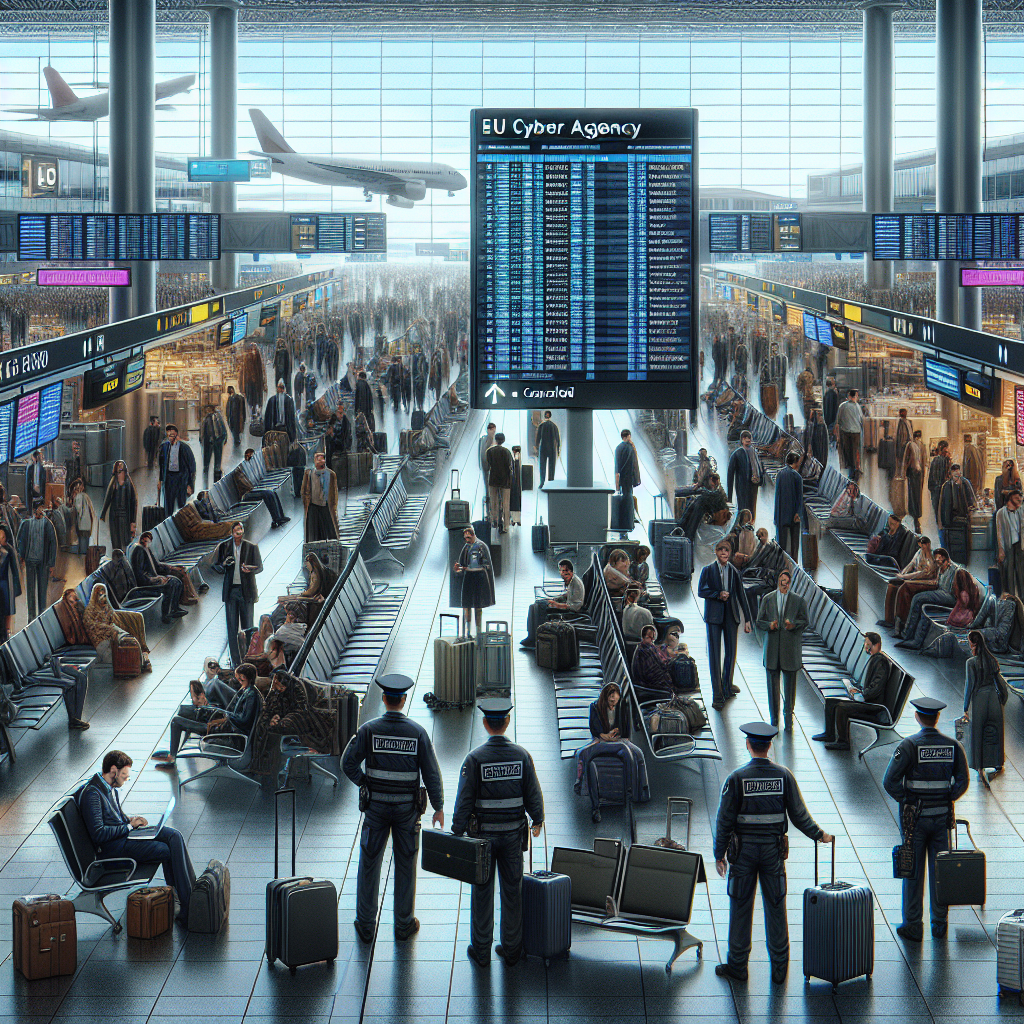In a recent development that underscores the escalating threat of cyberattacks, the European Union’s cybersecurity agency confirmed a ransomware attack targeting Collins Aerospace, a key provider of airport check-in systems. This malicious intrusion resulted in widespread disruptions, causing delays and impacting flights across Europe over the weekend.
The implications of such an attack are far-reaching, highlighting the critical importance of robust cybersecurity measures in safeguarding essential infrastructure. As airports serve as vital hubs for global travel and transportation, any disruption in their operations can have significant economic and logistical consequences. The ransomware attack on Collins Aerospace serves as a stark reminder of the vulnerabilities that exist within interconnected systems, with potential ripple effects affecting multiple sectors and stakeholders.
Cybersecurity experts have long warned about the increasing sophistication and frequency of ransomware attacks, where malicious actors encrypt data or systems and demand payment for their release. These attacks not only disrupt operations but also pose serious data security and privacy risks. In the case of airport check-in systems, any compromise can lead to chaos, affecting passengers, airlines, and airport authorities alike.
The incident involving Collins Aerospace underscores the need for organizations to prioritize cybersecurity at every level. From implementing robust threat detection mechanisms to conducting regular security audits and employee training, proactive measures are essential to mitigate the risk of cyber threats. In a hyper-connected world where digital systems form the backbone of critical infrastructure, the stakes have never been higher for ensuring resilience against cyberattacks.
In response to the ransomware attack on Collins Aerospace, swift action was taken to contain the breach, restore systems, and minimize the impact on airport operations. Such incidents serve as a wake-up call for industry stakeholders to collaborate, share threat intelligence, and collectively strengthen cybersecurity defenses. By fostering a culture of vigilance and resilience, organizations can better withstand the evolving threat landscape posed by cyber adversaries.
As technology continues to advance and cyber threats become more sophisticated, the onus is on organizations to stay ahead of the curve in cybersecurity preparedness. Investing in robust defense mechanisms, threat intelligence sharing, and incident response capabilities is no longer optional but imperative in safeguarding critical infrastructure and maintaining operational continuity. The ransomware attack on Collins Aerospace serves as a cautionary tale, urging stakeholders to remain vigilant and proactive in the face of evolving cyber risks.
In conclusion, the ransomware attack targeting Collins Aerospace and causing airport disruptions across Europe serves as a stark reminder of the pervasive threat posed by cyberattacks. As technology evolves and interconnectivity increases, the need for robust cybersecurity measures becomes paramount. By learning from such incidents, collaborating on threat mitigation strategies, and investing in proactive defense mechanisms, organizations can enhance their resilience and protect against cyber threats in an ever-changing digital landscape.

